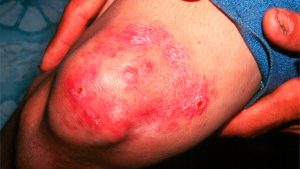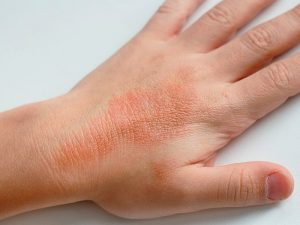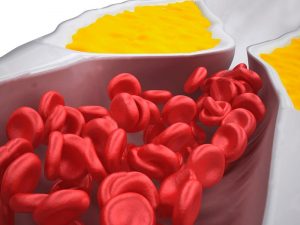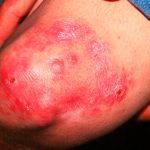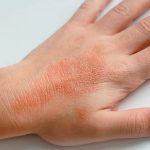Dealing with Diarrhea
Diarrhea is defined by the World Health Organization (WHO) as the passage of three or more loose/liquid stools a day (or more liquid stool than is normal for said individual). Fully formed stool, even when occurring frequently, does not constitute diarrhea. Diarrhea can last for anywhere from two to three days to several weeks, in which case you should contact your healthcare professional. This illness is usually caused by an infection in the intestinal tract, ignited by a mix of bacterial, viral and parasitic organisms.
WHO lists the following as the most common causes of diarrheal diseases:
- Malnutrition/dehydration: In cases of child diarrheal deaths, it is often due to underlying malnutrition. Diarrhea is the leading cause of malnutrition in children under five years old around the globe. Symptoms of diarrhea due to malnutrition or dehydration include thirst, urinating less, dark urine, fatigue, dry mouth, sunken eyes, bloating, change in appetite, gas, weight loss and lightheadedness.
- Infection: Most bacteria, viruses and parasitic organisms are spread by feces-contaminated water, causing infection. The risk of this type of infection increases during hygienic water shortages, including water for drinking, cooking and washing. Rotavirus and coli are the two most common agents that cause moderate-to-severe diarrhea in low-income countries.
- Source: Water contamination from human feces is a contributor to diarrheal diseases. Contamination can occur through sewage, septic tanks and latrines. Animal feces can also contain contaminating microorganisms and spread infection.
- Other causes: Diarrhea can be caused by a variety of other factors, including spread of infection by those with poor hygiene, food made in unhygienic conditions, unsafe water storage, fish and seafood from polluted/unhygienic water, allergies to specific foods (cow’s cow’s milk, soy, grains, eggs and seafood), radiation therapy and some medications. If you are experiencing frequent diarrhea, talk to your doctor about a possible food allergy or intolerance.
Symptoms
The main symptoms of diarrhea beyond loose stool can include:
- Urgent need to use the restroom.
- Cramps.
- Loss of bowel movement control.
- Nausea.
- Abdomen pain.
- Chills.
Fast Facts
- According to the Centers for Disease Control and Prevention (CDC),2000 children die daily worldwide as a result of diarrheal diseases.
- WHO estimates 525,000 children under five years old around the globe die each year from diarrhea.
- Diarrheal disease is the second leading cause of death globally for children under five.
- Unsafe drinking water, lack of availability of water for hygiene, and lack of sanitation contribute to about 88 per cent of diarrheal disease deaths.
Chronic Diarrhea
Chronic diarrhea, classified as malabsorption or inflammatory, comes out mostly as watery. The primary causes of chronic diarrhea are impaired digestion of fats as a result of low pancreatic enzyme levels, or impaired absorption of fats due to small-bowel disease. Both conditions impede the body from processing fat. The first cause of chronic diarrhea is usually caused by a chronic pancreas injury. Alcohol is the most common cause of pancreatic injury in the United States. The second condition, caused by problems in the small bowel, is most usually caused by celiac disease, the most common small-bowel condition in the U.S. If you see blood in your diarrhea, seek medical attention immediately. Chronic bloody diarrhea could be a sign of inflammatory bowel disease (ulcerative colitis or Crohn’s disease).
Travelers’ diarrhea
According to the CDC, an estimated 30 to 70 per cent of travelers get travelers’ diarrhea (depending on location and season). Travelers’ diarrhea is most commonly caused by bacteria in the food and water, along with poor hygiene practices, in restaurants. The CDC lists three destination risk groups:
- High Risk: Asia, Middle East, Africa, Mexico, Central America and South America.
- Intermediate Risk: Eastern Europe, South Africa, some Caribbean islands.
- Low Risk: United States, Canada, New Zealand, Japan,Western Europe.
To lower the risk of getting travelers’ diarrhea the CDC recommends taking bismuth-containing antacid medicine, reported to decrease the occurrence of travelers’ diarrhea by 50 per cent. This type of medication is not recommended for pregnant women or children under three years old. Talk to your healthcare professional for medication recommendations before traveling. The CDC also recommends safe hygiene practices:
- Wash hands with hot water and soap.
- Eat food that is cooked and served hot.
- Drink sealed, bottled water.
- Avoid tap waterand don’tuse ice made from tap water.Don’t drink unpasteurized milk.
How to Stop Diarrhea
There are many ways to treat diarrhea depending on the cause and severity. In milder cases, it is possible to opt for home remedies and wait a few days for the diarrhea to clear. These tactics include:
- Drinking clear liquids (water, broths, juices).
- Rehydrating with a mix of clean water, salt and sugar for electrolytes.
- Taking zinc supplements.
- Avoiding
- Slowly adding semi-solid and low-fiber foods to your diet (soda crackers, toast, eggs, rice and chicken).
- Avoiding dairy products, fatty foods, foods high in fiber or overly seasoned food.
- Taking probiotics to rebalance the intestinal tract.
In more serious cases, such as chronic diarrhea, doctors might prescribe medication. Your healthcare professional will have to identify the cause. In cases caused by bacterial and parasitic infections, your doctor may prescribe a treatment to target the infection. Diarrhea can be caused by other conditions, in which case you might be given medication for said ailment.
When Should you see a Doctor?
While there are many at-home remedies to help clear mild diarrhea, it is important to know when it is time to seek help. The National Institute of Diabetes and Digestive and Kidney Diseases (NIDDK) lists the following symptoms of when you should see a doctor:
- If diarrhea persists for more than two days.
- Fever of 102F or above.
- Frequent vomiting.
- Six or more loose stools in 24 hours.
- Severe abdomen or rectum pain.
- Stools that are either black or bloody.
- Dehydration.


